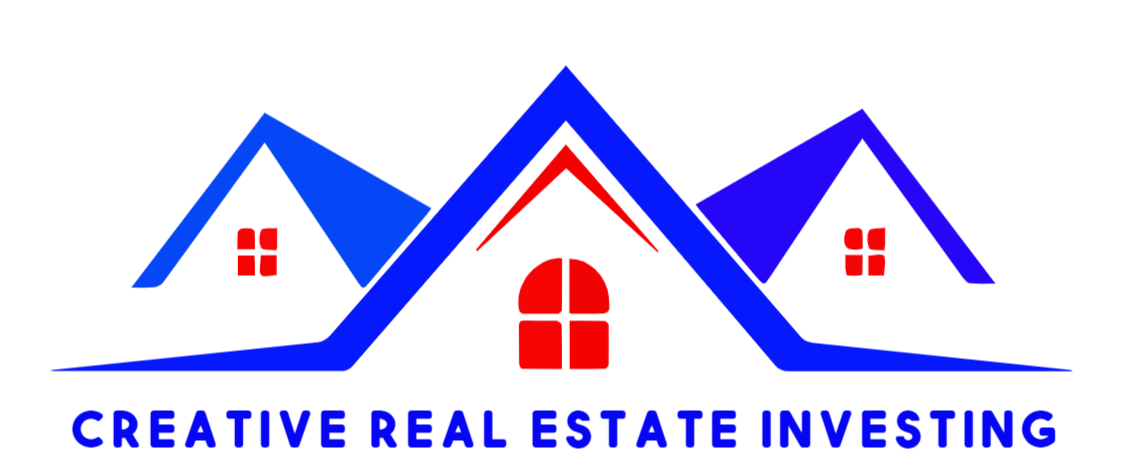If you’re a renter dreaming of owning your first home, coming up with a down payment can feel like an insurmountable obstacle. But don’t despair! There are several strategies for down payment assistance to help renters save for a new home.
First, it’s important to understand what a down payment is and why it matters. Essentially, a down payment is a sum of money you pay upfront when purchasing a home. This payment is typically a percentage of the total purchase price, and it serves as a way to demonstrate your financial stability and commitment to the purchase. In general, the larger your down payment, the better your chances of securing a favorable mortgage rate and overall loan terms.
With that in mind, let’s explore some ways you can start saving for your down payment today. By combining smart budgeting strategies, targeted saving plans, and additional income sources, you can take concrete steps towards achieving your homeownership dreams.
Understanding Down Payments
When buying a home, a down payment is the upfront payment made to secure the purchase of the property. It is typically a percentage of the total cost of the home and is paid at the time of closing. The down payment amount varies depending on the type of mortgage loan and the lender’s requirements.
One of the most significant factors in determining the down payment amount is the loan-to-value (LTV) ratio. This ratio is calculated by dividing the loan amount by the appraised value of the property. The higher the LTV ratio, the lower the down payment required. However, a higher LTV ratio may also result in a higher interest rate and mortgage insurance premiums.
Conversely, a lower LTV ratio may require a larger down payment but may result in a lower interest rate and lower mortgage insurance premiums. It’s important to understand the balance between the down payment amount and the LTV ratio to make an informed decision.
In addition to the down payment, there are other upfront costs associated with buying a home, including closing costs, appraisal fees, and inspection fees. These costs should also be factored into your budget when considering the down payment amount.
By understanding the down payment requirements and associated costs, you can make informed decisions about how much to save and budget for your first home purchase.
Budgeting Strategies
When it comes to saving for a downpayment on your first home, budgeting is key. Here are some budgeting strategies to help you reach your savings goals.
Analyze Current Expenses
The first step to creating a budget is to analyze your current expenses. This means tracking all of your spending for a month or two to get an accurate picture of where your money is going. Once you have a clear understanding of your expenses, you can begin to identify areas where you can cut back.
Set Savings Goals
Once you have a clear picture of your expenses, it’s time to set savings goals. Determine how much you need to save for a downpayment and set a realistic timeline for achieving that goal. Break your savings goal down into smaller, more manageable amounts and set a savings target for each month.
Reduce Non-Essential Spending
Reducing non-essential spending is a great way to free up money for your downpayment savings. This means cutting back on things like eating out, entertainment, and shopping. Look for ways to reduce your expenses without sacrificing your quality of life. For example, you could try cooking at home more often, finding free or low-cost entertainment options, and shopping for deals and discounts.
By following these budgeting strategies, you can take control of your finances and work towards your goal of owning your first home.
Saving Plans
If you’re a renter looking to buy your first home, saving for a downpayment is one of the most important steps you can take. Here are a few saving plans that can help you reach your goal:
Automated Savings
One of the easiest ways to save for a downpayment is to set up automated savings. This means that a certain amount of money is automatically transferred from your checking account to your savings account each month. You can set up this transfer through your bank’s website or mobile app. By automating your savings, you won’t have to think about it, and you’ll be more likely to stick to your savings plan.
High-Interest Savings Accounts
Another option for saving for a downpayment is to use a high-interest savings account. These accounts typically offer higher interest rates than traditional savings accounts, which means your money will grow faster. Look for accounts that offer no monthly fees and no minimum balance requirements. Keep in mind that high-interest savings accounts may have restrictions on how often you can withdraw your money.
Certificate of Deposit (CD)
A certificate of deposit (CD) is a type of savings account that typically offers higher interest rates than traditional savings accounts. With a CD, you agree to keep your money in the account for a certain amount of time, usually anywhere from 3 months to 5 years. In exchange, you’ll earn a higher interest rate. Keep in mind that if you withdraw your money before the CD matures, you may have to pay a penalty.
By using these saving plans, you can start building your downpayment fund and move closer to buying your first home. Remember to choose the plan that works best for you and your financial situation.
Additional Income Sources

If you’re a renter looking to save for a downpayment on your first home, you may need to consider additional income sources to supplement your current salary. Here are a few options to consider:
Part-Time Jobs
Taking on a part-time job is a great way to earn extra money and put it towards your downpayment savings. Consider finding a job with flexible hours that won’t interfere with your current work schedule. Some examples of part-time jobs include retail, food service, and delivery services.
Freelancing
Freelancing is another option for earning extra income. If you have a skill or talent, such as writing, graphic design, or web development, you can offer your services on freelance platforms like Upwork or Fiverr. This allows you to work from home and set your hours, making it a great option for those with busy schedules.
Renting Out Spare Space
If you have a spare room or a parking spot, consider renting it out for extra income. You can list your space on platforms like Airbnb or Craigslist to find potential renters. This is a great option for those who live in high-demand areas or near popular tourist attractions.
By taking advantage of these additional income sources, you can save more money towards your downpayment and achieve your goal of owning your first home.
Government Programs and Incentives
If you’re a renter looking to buy your first home, there are various government programs and incentives available to help you save for a downpayment. Here are two options to consider:
First-Time Homebuyer Grants
Some states, counties, and cities offer grants specifically for first-time homebuyers. These grants can help cover a portion of your downpayment and closing costs. To find out if you’re eligible for a first-time homebuyer grant, check with your local housing authority or visit the Department of Housing and Urban Development (HUD) website.
Matched Savings Programs
Matched savings programs, also known as Individual Development Accounts (IDAs), are another option for renters looking to save for a downpayment. With these programs, you contribute a certain amount of money each month, and your savings are matched by a sponsor organization. The match ratio varies depending on the program, but it’s typically 2:1 or 3:1. The money saved can be used for a downpayment on your first home.
It’s important to note that each program has its own eligibility requirements and application process. Be sure to do your research and find the program that’s right for you.
Financial Advice and Assistance

If you are a renter looking to buy your first home, financial advice and assistance can be invaluable in helping you save for a down payment. Here are two options to consider:
Credit Counseling Services
Credit counseling services can help you improve your credit score, which is an important factor in getting approved for a mortgage. These services can work with you to create a budget, develop a debt repayment plan, and dispute any errors on your credit report.
When choosing a credit counseling service, look for a nonprofit organization that is accredited by the National Foundation for Credit Counseling (NFCC) or the Financial Counseling Association of America (FCAA). These organizations have strict standards for their members and can provide you with trustworthy guidance.
Financial Planners
A financial planner can help you create a plan to save for a down payment and manage your finances leading up to your home purchase. They can also help you understand the different types of mortgages available and which one may be the best fit for your financial situation.
When choosing a financial planner, look for someone who is a Certified Financial Planner (CFP) and has experience working with first-time homebuyers. You may also want to consider working with a fee-only planner, who does not earn commission on any financial products they recommend.
By working with credit counseling services and financial planners, you can get the guidance and support you need to save for a down payment and achieve your dream of homeownership.
Frequently Asked Questions

What are some down payment assistance programs available for first-time home buyers?
There are various down payment assistance programs available for first-time home buyers, including grants, loans, and tax credits. Some popular programs include the Federal Housing Administration (FHA) loan, the Veterans Affairs (VA) loan, and the United States Department of Agriculture (USDA) loan. Additionally, many states and local governments offer down payment assistance programs.
How can I access the down payment and closing cost assistance?
To access down payment and closing cost assistance, you can start by researching available programs in your area. Some programs have specific eligibility requirements, such as income limits or credit score minimums. You may need to provide documentation of your income, assets, and credit history to qualify for assistance.
What are the advantages and disadvantages of using down payment assistance?
The main advantage of using down payment assistance is that it can help you afford a home that you might not otherwise be able to purchase. However, there may be some disadvantages to consider as well. For example, some programs may require you to pay back the assistance if you sell the home within a certain timeframe. Additionally, some programs may have higher interest rates or fees than traditional mortgages.
Are there ways to purchase a house with no money down for individuals with poor credit?
While it can be challenging to purchase a home with no money down and poor credit, it is not impossible. One option is to look for rent-to-own or lease-to-own programs, which allow you to rent a home with the option to buy it later. Another option is to work with a lender who specializes in helping individuals with poor credit.
What strategies can I employ to save for a house down payment while still paying rent?
There are several strategies you can use to save for a down payment while still paying rent. One option is to create a budget and identify areas where you can cut back on expenses. You can also consider taking on a side job or selling unused items to generate extra income. Another option is to set up a separate savings account specifically for your down payment and contribute to it regularly.
What credit score is typically required to buy a house with minimal or no down payment?
The credit score required to buy a house with minimal or no down payment varies depending on the lender and the type of loan you are applying for. However, in general, a credit score of at least 620 is recommended for FHA loans, and a score of at least 640 is recommended for USDA loans. VA loans do not have a minimum credit score requirement, but lenders may have their own requirements.
I’m real estate investor, self-improvement coach, author, and publisher, Don Mayer. I would love to connect further with you to help you achieve your goals. If you are interested in learning more about lease purchasing a home, please take a look at my entry-level rent-to-own guide “The Ultimate Home-Finders Workbook”, and consider coming aboard and learning the steps to moving into a home of your own!

